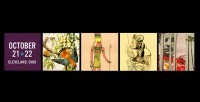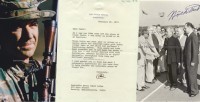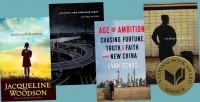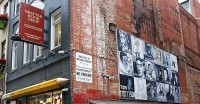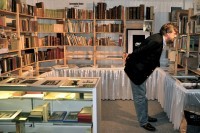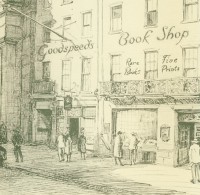Summary of a report by Terry Belanger on the conference “Acknowledging the Past, Forging the Future: National Colloquium on Library Special Collections” Organized by the Kelvin Smith Library at Case Western Reserve University 21-22 October 2014 Rare book and special collections librarians tend to be creatures of habit, with traditional migratory patterns. They flock (1) to the annual Rare Books and Manuscripts Section (RBMS) pre-conference, generally held in late June, shortly before (2) the annual conference of the American Library Association (ALA); and – especially for mid-level members of the profession – (3) to ALA's midwinter conference, generally held at the end of January, when it sometimes annoyingly competes with the various tribal shrieks of (4) Bibliography Week in New York City. Those on the archival side of the roost tend (5) to gather at the late-summer annual meeting of the Society of American Archivists (SAA), and there is always a substantial flight of librarians attending (6) the annual summer conference of the Society for the History of Authorship, Reading, and Publishing (SHARP) and the annual fall conference of the American Printing History Association (APHA). Library salaries and institutional travel budgets being what they are, most members of the profession must pick which conferences in this clutch of treats they will attend, since few of them receive sufficient funding to go to everything, and fewer still wish to take the time off to do so, ... [more Acknowledging the Past, Forging the Future]
The Vietnam War was America's most influential event from 1950 to 2000. The conflict, more than any other contemporary occurrence, changed American society, foreign policy, politics and the military. Although I grew up after the war ended, I have always had an interest in the conflict and how it affected the United States. I wrote my college thesis on the use of Old Glory before, during, and after the Vietnam War era. A rare Ho Chi Minh signed photograph, taken at a Soviet airport. Based on my curiosity, I have, for the past fifteen years, been collecting all aspects of the Vietnam War – posters, letters home written by soldiers and prominent people, photographs, books, flags, buttons, medals, pamphlets, and much more. There are now thousands of items in my archive and growing daily. A few highlights of my collection include: A rare Ho Chi Minh signed photograph A John Kerry letter inviting a Congressman to the ceremony where he threw his war medals A first edition of the Port Huron Statement put out by the Students For A Democratic Society A letter by Senator Pat McNamara on the very day President Johnson signed by Gulf of Tonkin Resolution, defending the bill A signed photograph of the legendary Marine sniper Carlos Hathcock who scored 93 kills in Vietnam A 1970 Bill Clinton letter discussing his draft number A book signed by many of last Marines rescued from the Saigon Embassy rooftop A President Nixon letter to Henry Cabot Lodge, the former ambassador to South Vietnam, ... [more Collecting Vietnam War Memorabilia]
It is circa 1788. An American lawyer, Archippus Seele (1765–1789) of Easton, Massachusetts, is apparently in a grumpy mood. The reasons could be many. Some in the community accused Archie's father, a sawyer, of employing the imps of Satan to keep things running. That could make you unhappy. If Archippus had been a precog perhaps he had a freak when he intuited his mother would become a distant ancestor to the creator of Tarzan, Edgar Rice Burroughs. Basically, and to the point, Archippus doesn't like women. We know this because he left behind a strange manuscript we've given a caption title of The Discription {sic} of the Female Sect. – A Woman Is As Full Of Failings As A Spider's Nest of Eggs. Why Did Esquire Seele write this manuscript and for whom? We may not ever know, but we surmise it was written in jest and we speculate his “essay” was shared in an exclusively male social sphere. Archippus thinks women are “deceitful crickets.” And he's not shy to elaborate: When a man is married, he had better be in a small cottage or cave in peace than in the statelyest palace in the world with one of these spendthrifts & diabolical conceited deceitful crickets which are much more destructive than the devouringst beast upon Earth {etc.}. Of course, this 18th Century-Man-About-Massachusetts wouldn't be a true misogynist unless being the son of the sawyer he pulled out this old saw against women: Among all the observation concerning women I have considered and observed that... [more What’s Eating Archippus Seele? A 1788 Lawyer’s Misogynistic Manuscript]
The 2014 National Book Awards were presented last night at a gala event at Cipriani on Wall Street. Daniel Handler (aka Lemony Snicket) was the master of ceremonies, and let no opportunity to mock a certain massive online retailer pass -- nor indeed, did several of the other speakers. The winners of the 2014 National Book Awards were: YOUNG ADULT FICTION: Brown Girl Dreaming by Jacqueline Woodson (Penguin/Nancy Paulsen Books) The third nomination for Jacqueline Woodson and her first win. POETRY: Faithful and Virtuous Night by Louise Glück (Farrar, Straus and Giroux) Glück, a former Poet-Laureate, had been a finalist for the National Book Award three previous times without winning. NONFICTION: Age of Ambition: Chasing Fortune, Truth and Faith in the New China by Evan Osnos (Farrar, Straus and Giroux) Evan Osnos, who writes for the New Yorker and is the son of Public Affairs founder Peter Osnos, lived in China for seven years while working on the Age of Ambition. FICTION: Redeployment by Phil Klay (Penguin Press) Iraq-War veteran Phil Klay gave a moving speech were he said that after serving in Iraq, he “came back not knowing what to think” and that writing the short stories in Redeployment was his attempt to process his experiences of war. “War is too strange to be processed alone.” Redeployent is the first collection of short fiction to win the prize since Andrea Barrett's Ship Fever in 1996. The Literarian Award for Outstanding Contribution to the American Literary... [more 2014 National Book Award Winners]
The recent posts by Peter Stern, Rusty Mott, and Joyce Kosofsky made me wish I was in Boston last weekend for the book fair, but circumstances conspired against it this year. However, in a spirit of Bostonian collegiality, I thought I'd write about something I have noticed in the past here in Europe: the false Boston imprint. Last year, Mitch Fraas at the University of Pennsylvania made a study of fictitious American imprints before the year 1800. By his count, there were 173 European books which purported to have been published in America, but weren't. The vast majority of those (136) took Philadelphia as their imprint, but Boston comes second, with 19. These 'not Boston' books are quite scarce, but you do see them from time to time. Here are a couple of examples. This is a translation of the spurious Memoirs of an unfortunate Queen, originally published in 1776 by the London bookseller, John Bew. The public bought up two editions within the year, and Bew also brought out one in French. The 'unfortunate queen' was Caroline Matilda (1751–1775), the youngest sister of George III who was married off to her cousin, Christian VII of Denmark, when she was only 15. It was not a happy marriage. Christian was a mentally unstable philanderer who claimed it was 'unfashionable to love one's wife', and Caroline eventually drifted into an affair with the royal physician Johan Struensee, a rising star at the Danish court who effectively ruled the country for ten months as Christian's men... [more Not Boston]
UPDATE (12/8/14): BOOKS RECOVERED A package of books has one missing in transit from California to Maine and contained the following items: (San Francisco) Ladies Aid Society of the Baptist Church. *The Baptist Church Cook Book*. First Edition. San Francisco: 1910. (Oakland) *The Ladies' Superior Cook Book*. First Edition. Oakland: Enquirer Publishing, 1899. (San Francisco) *Corona Club Cook Book.* Cloth. First Edition. San Francisco: 1910. (Los Angeles) *California Congress of Parents and Teachers, Los Angeles Tenth District: Tested Recipes*. Los Angeles: 1934. (Kansas) Daughters of the First Presbyterian Church. *Good Things to Eat.* Salina, KS: Padgett's Printing House, 1922. (Arizona) *Presbyterian Ladies' Aid Cook Book.* First Edition. Phoenix: c.1900. (Nebraska) *The Loup City Cook Book: A Collection of Tried Recipes, Compiled by the Ladies of Loup City, for the Benefit of the Baptist Church.* First Edition. Loup City, NE: Standard Gauge Print, 1909. (Utah) Pratt, P.P., ed. *Home Economy, Etc.* Second Edition, Revised & Enlarged. Salt Lake City: P.P. Pratt, 1895. (Utah) *Recipes Compiled by the Ladies of St. Mark's Guild 1886, Revised 1909.* Revised Edition. Salt Lake City: Ackerman & Co., 1909. (Wyoming) Woman's Club. *Parco Cook Book.*. First Edition. Parco, WY: Woman's Club, 1930. (Colorado) *Choice Recipes Compiled by the Ladies of St. Mark's Guild.* First Edition. Victor, CO: Leary-Poole Job Print, c.1900. (Colorado) Guild of All Saints Mission. *“Columbine”: A... [more Missing in Transit: Package of Rare Cookbooks]
Things have changed in the Boston since the first ABAA Boston Book Fair was launched. And in a profession that deals in the old, change can be a good thing. There were shops that were within walking distance from each other. Others were a short subway ride or car ride away. And while we're going down memory lane, let's include Cambridge and a suburb or two. (Greg, Gloucester is not a suburb of Boston, but I'll mention you anyway). Back in the day (let's use the first ABAA Boston Book Fair as a reference point), there was Brattle, Goodspeed's, Starr, Sam Morrill, F.A. Bernett, Temple Bar, The Bromers, Mike Ginsberg, Robin Bledsoe, Ernie Morrell, the O'Neals (David and Mary,) the O'Neills (Jimmy and Gene), and Harold Burstein. Change came about in a variety of ways. Goodspeed's lost momentum during the 1990s. As a result, George closed the 'used book' shop on Milk Street and moved his 'rare book' shop from its Beacon Street retail shop to an office. Eventually the shop closed and George died in 1997 without leaving an heir. Ernie Starr and Sam Morrill passed, too. Norm Starr ran the shop for a while, but with soaring rent, he moved to Cambridge, then further out, and eventually closed shop. Ernie Morrell had a lovely shop of dance and theater arts books on the flat of Beacon Hill. Harold Burstein, one of the founders of the Boston Book Fair, dealt from Waltham, not too far out from the City. His legacy continues, but further west, in Bernardston, MA. The Cantabrigians also fell... [more Changes: The Boston Bookstore Scene]
This item is still missing as of 5/31/2019. A collector in the Los Angeles area reported the theft of the following item: Age of Innocence by Edith Wharton First Edition (1st Issue) in dust jacket. The book is housed in a blue half leather clamshell box. The dust jacket is unrestored and has a small tape repair on the verso of the jacket near the foot of the spine. A photo of the book is below. If you have any information concerning this book, please contact Mike Hurey at mhurey@kleinberglerner.com or at (310) 871-2646. [more Stolen: ‘Age of Innocence’, First Edition in Dust Jacket]
I've been asked to dredge up a few memories about the Boston book fair, the venues it occupied prior to its current home at the Hines Convention Center, and some of the dealers who exhibited in Boston in previous generations. Our firm, Howard S. Mott, Inc., is one of six firms to have exhibited at every Boston book fair since its inception in 1976, the upcoming fair being the 38th Annual. The others are Brattle Book Shop, Michael Ginsberg, aGatherin', Rulon-Miller, and Phil McBlain. The idea for the book fair came from Harold Burstein, and at the first exploratory meeting were Harold, Ken Gloss, Ken Rendell, and Mike Ginsberg. When the Boston Antiquarian Book Fair began our firm was still a member of the Mid-Atlantic Chapter of the ABAA. The firm started business life in New York City when there was no New England Chapter, and twenty years later, after my father and mother moved the family to Massachusetts in 1956, there was still no NE Chapter. When such a chapter was established my parents were slow to make the change. Thus, we were not involved with the creation of the fair. The early fairs were managed by Anne Bromer's mother, the indomitable Florence Finn. She was small in stature, but large in personality and authority. No problem was too big or too small for her, and she ran the show beautifully until she retired after something on the order of ten years at the helm. The first few fairs were held at the Copley Plaza Hotel, and they started slowly despite its ideal loca... [more Recollections Of The Boston Book Fair, By A Lifer]
Peter L. Stern introduces several notable characters in the Boston rare-book trade. I have been asked to write a blog for the ABAA along the lines of “characters in the Boston book trade.” I hardly know where to begin, but I'll give myself a pass and leave it to others to extoll my virtues and undisputed genius. My own career in the antiquarian trade started at the Starr Book Company on Kingston Street. This was very nearly where the Great Boston Fire (1872) originated, and our building was likely built on those ashes. It may have been 1972 outside, but inside it was a century earlier. We only had direct current, our heat came from a central Edison steam plant, and “air conditioning” was supplied by an industrial fan that sounded like a revving B-24. My morning's first task was to sweep the floor and then pack shipments, which were bundled with string. Remember packages tied by string? My starting pay was a princely $100 a week, but given the modest business that paid it, I never resented it, although more than once, I was very nearly felled by book avalanches. My boss, Ernie Starr, had been in the trade since the late thirties or early forties. He possessed a genuine enthusiasm and appreciation for books, even if he occupied a low rung on the ladder. He was originally in business with his brother Milt, a rather gruff man. Eventually, he and Ernie split up. Milt got Cambridge, Ernie got Boston. I particularly recall one anecdote Ernie told about their partnership. The... [more Boston: Characters in the Rare Book Trade]


